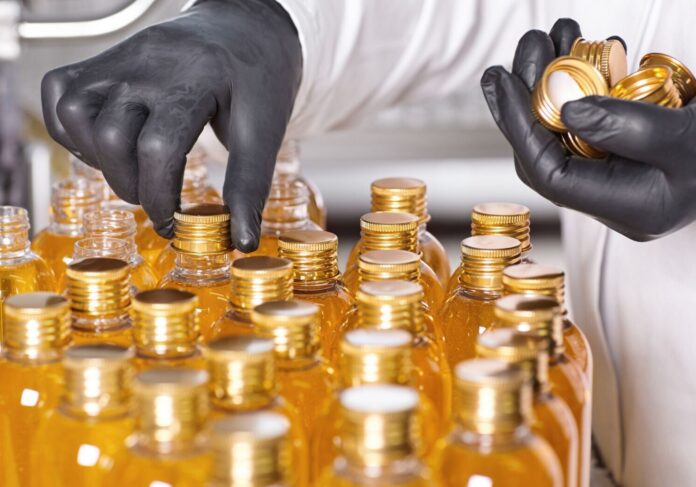The skincare industry is experiencing rapid growth,with consumers increasingly seeking high-quality, effective, and safe products to maintain healthy skin. Skincare manufacturers play a pivotal role in creating these products, offering formulation, production, and packaging services to bring skincare brands’ visions to life. This guide provides an in-depth look into skincare manufacturing, highlighting key processes, industry trends, and how to select the right manufacturer for your brand.
1. Introduction to Skincare Manufacturing
Skincare manufacturer are the backbone of the beauty industry, responsible for developing, formulating, and producing a wide range of skincare products. From moisturizers to serums and cleansers, they ensure that products meet both market demands and regulatory standards. Their expertise allows brands to focus on marketing and sales, while manufacturers handle the complexities of production.
2. The Skincare Industry Overview
The global skincare market is one of the fastest-growing segments in the beauty industry, driven by a heightened awareness of skincare routines and ingredients. The industry’s growth is fueled by consumer preferences for natural and organic products, demand for anti-aging solutions, and the influence of global beauty trends like K-beauty (Korean skincare). Understanding this landscape is crucial for brands looking to position themselves in a competitive market.
3. Types of Skincare Manufacturers
- OEM (Original Equipment Manufacturer): Produces products based on a client’s specific requirements and formulas.
- ODM (Original Design Manufacturer): Offers pre-developed products that brands can customize, often providing faster time-to-market.
- Private Label: Provides ready-made products that can be branded under the client’s name, ideal for startups looking for a low-cost entry into the skincare market.
4. Steps Involved in Skincare Product Manufacturing
- Research and Development (R&D): Manufacturers collaborate with clients to develop product concepts and formulations tailored to specific skin types or concerns.
- Ingredient Sourcing: Choosing high-quality, safe ingredients is crucial. Manufacturers source raw materials, ensuring they meet purity and ethical standards.
- Formulation and Testing: In-house chemists and researchers develop formulations, conducting tests for efficacy, stability, and safety.
- Production and Packaging: Once the formulation is finalized, products are manufactured in large batches and packaged according to brand specifications.
- Labeling and Compliance: Proper labeling is essential to meet legal regulations, including ingredient lists, usage instructions, and safety warnings.
5. Essential Ingredients in Skincare Manufacturing
Manufacturers work with a variety of ingredients, including:
- Natural and Organic Ingredients: Essential oils, botanical extracts, and plant-based compounds.
- Active Ingredients: Hyaluronic acid for hydration, retinol for anti-aging, and vitamin C for brightening.
- Preservatives and Emulsifiers: Necessary to maintain product stability and safety.
- Trending Ingredients: Such as CBD, niacinamide, and probiotics, which cater to the latest consumer demands.
6. How to Choose the Right Skincare Manufacturer
Selecting a manufacturer is a critical decision:
- Expertise: Look for manufacturers with experience in creating products similar to your vision.
- MOQs: Understand the minimum order quantity, as some manufacturers cater to large-scale production, while others support small batches.
- Certifications: Ensure the manufacturer complies with GMP (Good Manufacturing Practices) to guarantee quality and safety.
- Customization: Choose a manufacturer willing to create custom formulations if you want unique, brand-specific products.
7. Formulation and Customization Services
Manufacturers can provide:
- Custom Formulations: Tailored products for various skin types, including sensitive, oily, or acne-prone skin.
- White Label: Ready-made products that brands can rebrand.
- Client-Desired Ingredients: Incorporating specific ingredients like organic extracts, vitamins, or fragrances based on client preferences.
8. Regulatory Compliance in Skincare Manufacturing
Compliance with regulations is vital:
- FDA Regulations (U.S.): Skincare products must be labeled accurately and not make unverified health claims.
- EU Cosmetic Regulations: Strict rules around ingredient safety, labeling, and claims must be adhered to for products sold in the European Union.
- Import/Export: Manufacturers should assist with regulatory compliance for international markets.
9. Packaging and Design in Skincare Products
Packaging is a key aspect of product presentation:
- Sustainable Packaging: Growing demand for eco-friendly packaging options, such as recyclable or biodegradable materials.
- Brand Identity: Packaging design should align with the brand’s image and attract the target market.
- Labeling Requirements: Accurate ingredient lists, usage instructions, and warnings must be included to comply with regulations.
10. Quality Control and Testing
- Microbial Testing: Ensures the product is free from harmful bacteria and fungi.
- Stability Testing: Determines the shelf life and stability of products under various conditions.
- Allergy Testing: Essential for ensuring that products are safe for all skin types.
11. Natural and Organic Skincare Manufacturing
The demand for natural and organic skincare is on the rise:
- Certification Standards: Manufacturers may pursue certifications like USDA Organic, Ecocert, or COSMOS to meet consumer expectations.
- Benefits: Organic products are often gentler on the skin and appeal to eco-conscious consumers.
- Challenges: Sourcing organic ingredients and maintaining product stability without synthetic preservatives.
12. Costs Involved in Skincare Manufacturing
Costs can vary based on:
- R&D: Developing custom formulations can be more expensive.
- Ingredients: High-quality, organic ingredients often cost more than synthetic alternatives.
- Packaging: Custom packaging adds to the overall cost, especially for eco-friendly options.


